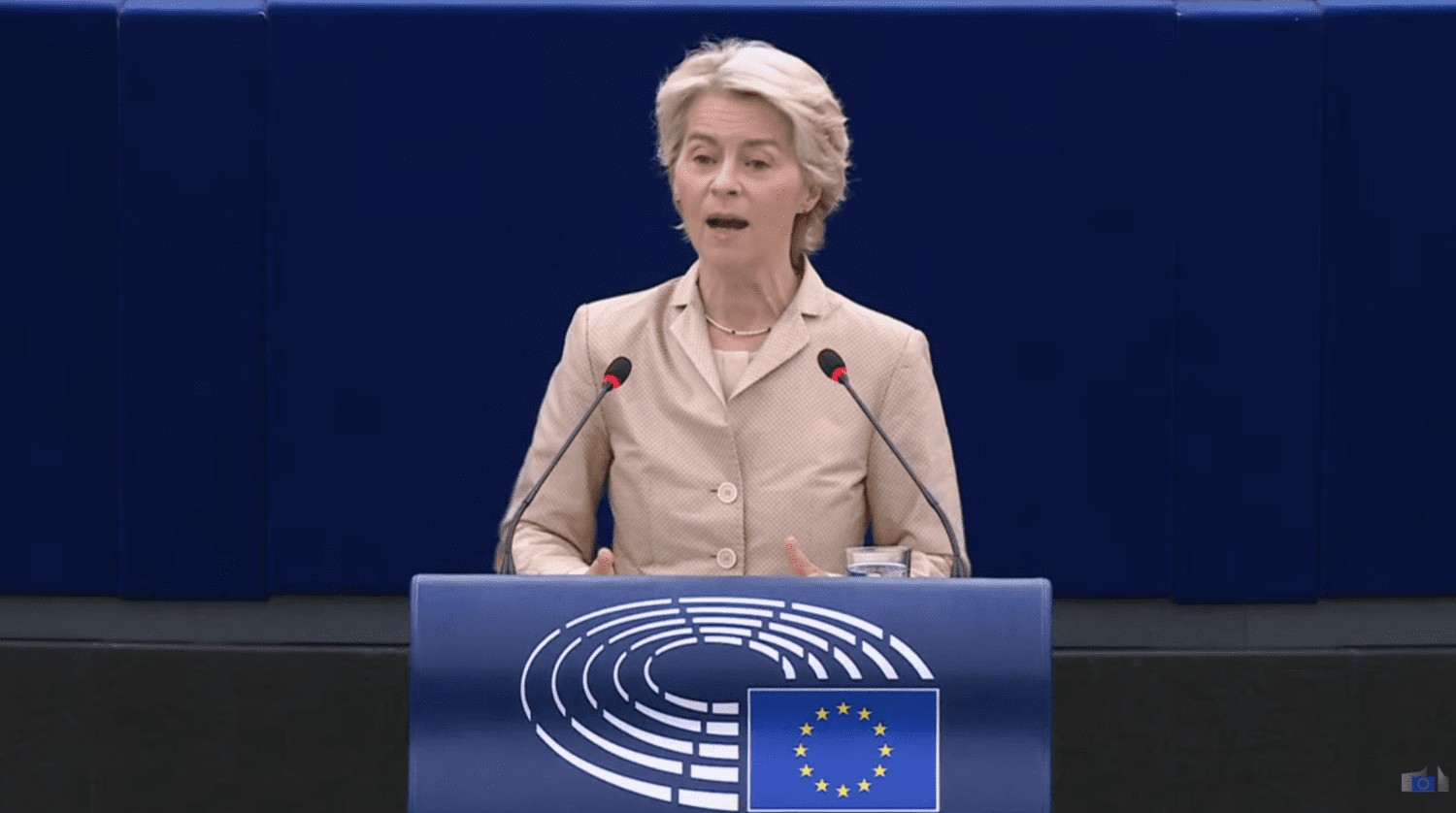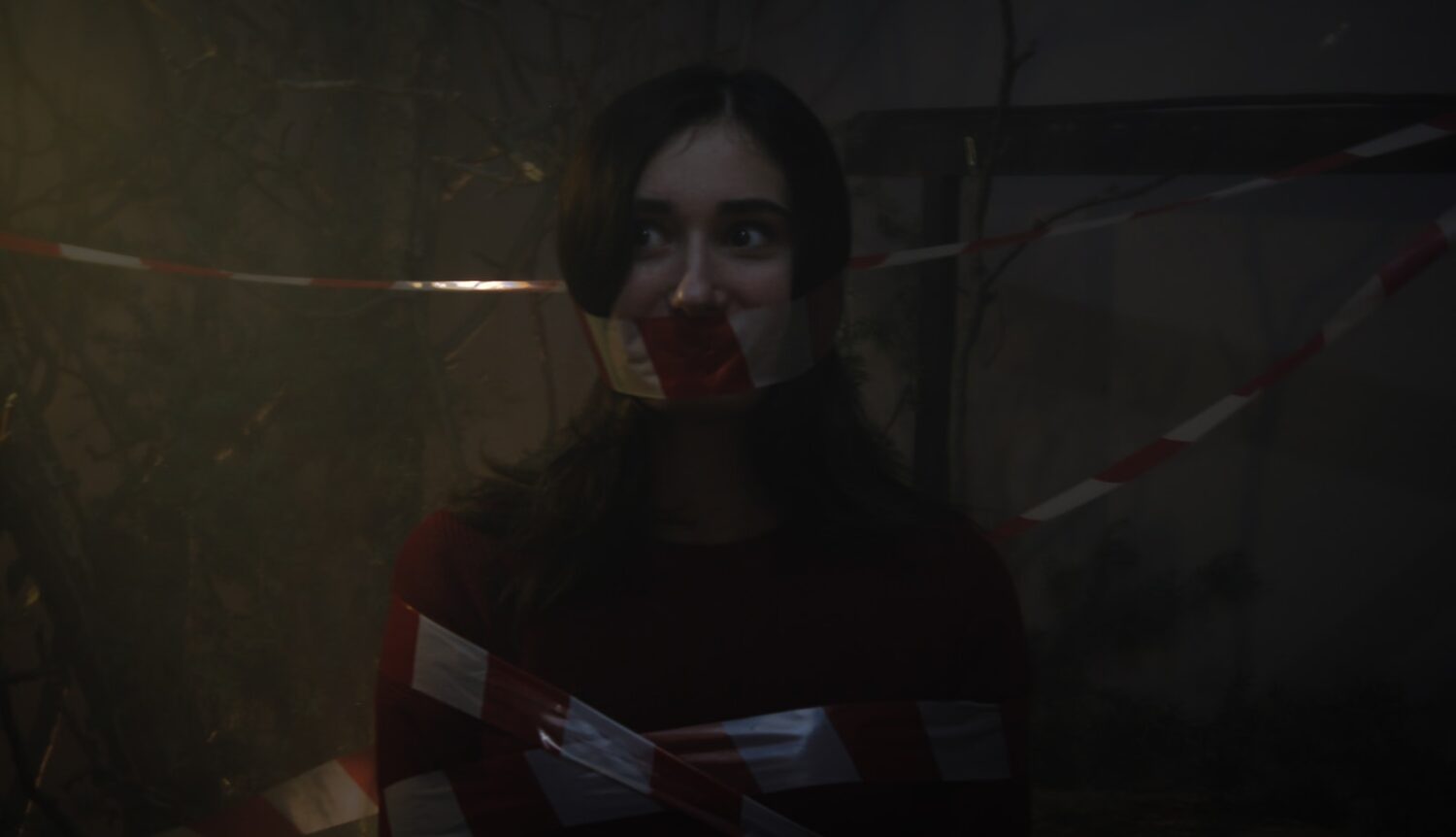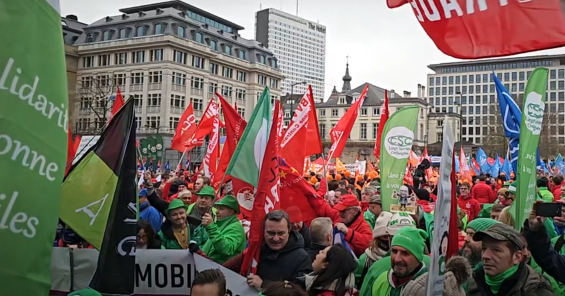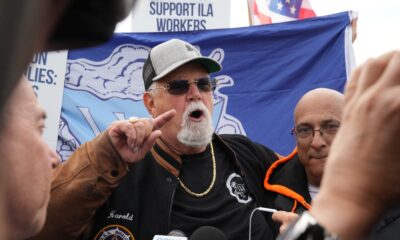Politics
Hungary’s Role in Europe’s Future: Von der Leyen on Crisis, War, and Economic Growth

On a day that marked significant reflection and determination, Ursula von der Leyen, the President of the European Commission, addressed the European Parliament, focusing on key issues impacting Hungary, Ukraine, and the wider European Union. With a tone of solidarity and unity, she emphasized the importance of collective action in tackling the pressing challenges of our time: from climate change and migration to competitiveness and the ongoing war in Ukraine.
The Aftermath of Extreme Weather in Central Europe
The speech opened with von der Leyen expressing solidarity with Hungary and Central Europe after devastating floods, which delayed the meeting by three weeks. She described the extreme weather as a consequence of climate change, highlighting that “five months’ worth of rain fell on Central Europe in just four days.” The magnitude of the floods was unprecedented, causing destruction to landmarks, crops, and industries across the region, particularly in Budapest.
However, amidst this devastation, von der Leyen applauded the resilience of the Hungarian people: “In these three weeks, we have seen the people of Hungary rolling up their sleeves and helping one another.” She emphasized that Europe would stand by Hungary, stating, “The European Union is there for the people of Hungary in this emergency and beyond.” The European Commission had already mobilized its Copernicus satellites to aid in the rescue efforts, and Hungary was encouraged to access the EU’s Solidarity Fund to rebuild.
Supporting Ukraine Through Its Hardest Winter
Von der Leyen shifted the focus to Ukraine, a country heading into its third winter of war with Russia. The situation has worsened as Russia continues its assaults, launching over 1,300 drones on Ukrainian cities in the past month alone, targeting essential energy infrastructure and causing widespread destruction. In a powerful rebuke to those who downplay Russia’s aggression, von der Leyen asked, “Would they ever blame the Hungarians for the Soviet invasion in 1956? Would they ever blame the Czechs or Slovaks for the Soviet repression of 1968?” She emphasized that the Ukrainian people are freedom fighters, much like the heroes who liberated Central and Eastern Europe from Soviet rule.
Europe’s response to the war is unwavering. Von der Leyen announced that the EU, alongside the G7, had pledged €50 billion to Ukraine, of which €35 billion would come in the form of loans to support the country’s national budget. Critically, these loans would be repaid using the windfall profits from immobilized Russian assets. “We are making Russia pay for the damage it caused,” she asserted, emphasizing Europe’s continued support for Ukraine “through this winter and for as long as it takes.”
Enhancing European Competitiveness
The next priority in von der Leyen’s speech centered on improving European competitiveness. She referred to the Draghi report, which provided a roadmap for strengthening the EU’s economic future. The primary concern raised was the “innovation gap” between Europe and other major economies, particularly in the digital space. “Too many of our innovative companies have to look at the United States or Asia to finance their expansion,” she noted, pointing out that while European households have €300 billion in savings, much of it is invested outside the continent.
Von der Leyen proposed a solution: the creation of a savings and investment union, aimed at eliminating barriers that prevent companies from scaling up across European borders. To boost competitiveness, she suggested a reduction in regulatory burdens, especially in sectors like finance and digital technologies.
However, the president took a firm stance against Hungary’s current policies, criticizing the Hungarian government for its discriminatory practices towards European businesses. She questioned how Hungary could hope to attract investments when it imposes arbitrary export restrictions, discriminatory taxes, and allows corruption to flourish in public contracts. “This creates uncertainty and undermines investors’ trust,” she warned, pointing out that Hungary’s GDP per capita had fallen behind its Central European neighbors.
Decarbonization and Energy Security
Von der Leyen also tackled the issue of decarbonization, a critical part of Europe’s path towards sustainability. In light of the ongoing war, she reminded the parliament of the pledge made by all 27 EU leaders at Versailles to diversify away from Russian fossil fuels. “One thousand days later, Europe has indeed diversified,” she declared, with half of Europe’s electricity generation now coming from renewable energy sources. However, she condemned Member States that still relied on Russian fossil fuels, stating unequivocally that “Russia has proven time and again it is simply not a reliable supplier.”
Her message was clear: energy security is synonymous with European security. Europe must continue its transition to clean, homegrown energy, creating jobs within the EU rather than sending money to Russia.
Migration: A Challenge for Europe
Migration remained a key topic in von der Leyen’s speech. Acknowledging it as a “European challenge that requires a European answer,” she emphasized the importance of implementing the newly adopted Pact on Migration and Asylum. The EU is already working with Member States at its external borders, but von der Leyen expressed concern over Hungary’s approach to the migration issue. She pointed out that Hungarian authorities had released convicted smugglers and traffickers from prison before they had completed their sentences, undermining European efforts to combat illegal migration. “This is not fighting illegal migration in Europe. This is not protecting our Union,” she criticized.
Additionally, von der Leyen highlighted the security risks posed by Hungary’s visa scheme, which allowed Russian nationals to enter the EU without proper security checks. She also questioned the Hungarian government’s decision to allow Chinese police to operate within its borders, describing these actions as threats to European sovereignty.
A Call for European Unity
Von der Leyen concluded her speech with a powerful call for European unity, recalling Prime Minister Viktor Orbán’s words from 2011 when Hungary first held the Presidency of the Council of the EU: “We will follow in the footsteps of the revolutionaries of 1956. We intend to serve the cause of European unity.” Reaffirming that “Europe must stand united,” she addressed the Hungarian people directly, saying, “Your story is our story. Your future is our future. 10 million Hungarians are 10 million good reasons to keep shaping our future together.”
In this critical moment for Europe, von der Leyen’s speech served as both a warning and a reminder of the values that bind the European Union together—solidarity, unity, and a shared commitment to freedom and democracy.
Politics
EU Extends Sanctions on Nicaragua, Calls for Restoration of Fundamental Freedoms

The European Council has once again extended its restrictive measures against Nicaragua for an additional year, maintaining the sanctions until October 15, 2025. This decision reflects the EU’s ongoing concern over the deteriorating political and social conditions in Nicaragua, emphasizing the urgent need for democratic reforms and respect for human rights.
Currently, the restrictive measures target 21 individuals and three entities, enforcing an asset freeze and prohibiting EU citizens and companies from providing funds to those listed. Moreover, the sanctions impose a travel ban on these individuals, preventing them from entering or passing through EU territories.
The sanctions regime was initially enacted in October 2019, as the EU sought to address the escalating crisis in Nicaragua. The Council has repeatedly highlighted serious issues, including the erosion of human rights, democracy, and the rule of law in the country. These measures are reassessed annually, ensuring that the EU’s response remains relevant and effective.
The European Union remains steadfast in its call for Nicaragua to restore fundamental freedoms, release all remaining political prisoners, and permit the return of international human rights organizations. The EU urges an end to the ongoing restrictions on civic space and insists on the right to dissent being respected.
Reaffirming its commitment to the Nicaraguan people, the EU emphasizes the importance of defending democracy, the rule of law, and human rights. The political crisis plaguing Nicaragua demands a resolution through sincere dialogue between the government and opposition forces, a solution the EU firmly advocates.
As Nicaragua faces continued international scrutiny, the EU’s measures represent a strong message: genuine reform and respect for fundamental freedoms are imperative to advancing the nation’s democratic and social stability.
Politics
OSCE Workshop Enhances Inter-Agency Collaboration for Youth Crime Prevention in Kyrgyzstan

Issyk-Kul, Kyrgyzstan – 7 October 2024 – From October 1 to 3, the OSCE’s Transnational Threats Department, in collaboration with the Office of the Co-ordinator of OSCE Economic and Environmental Activities, hosted a significant multi-stakeholder workshop in Issyk-Kul, Kyrgyzstan, aimed at bolstering inter-agency cooperation on youth crime prevention. This initiative brought together 30 representatives from law enforcement and social services, including key participants from the Ministry of Interior and the Ministry of Labor and Social Protection.
The workshop’s central focus was on fostering effective collaboration among different agencies to ensure at-risk youth, regardless of gender, are deterred from criminal pathways. Through a series of interactive sessions, attendees were encouraged to identify, assess, and prioritize real-life cases of youth crime, while collaboratively developing strategies to address the underlying causes of criminal behavior.
“Youth crime prevention is a priority for Kyrgyzstan,” commented Nurzhan Adylova, Head of the Department of the Public Security Service within the Ministry of Interior. “This workshop was an effective platform for us to explore ways to improve cooperation between law enforcement, schools, and social workers, aiming to promote a culture of lawful behavior from an early age.”
The workshop represents a pivotal component of the OSCE-wide multi-year extra-budgetary project titled “Enhancing Youth Crime and Drug Use Prevention through Education on Legality and Awareness Campaigns Addressing Threats of Organized Crime and Corruption.” This project has received primary funding from Germany, along with additional support from countries including Andorra, Finland, Italy, Norway, and Poland.
By fostering collaboration and developing shared strategies, the workshop aimed to establish a more cohesive approach to preventing youth crime in Kyrgyzstan. The engagement of various stakeholders underscores a commitment to tackling the root causes of youth criminality, ultimately seeking to empower young people through education and support systems, while instilling a strong sense of community responsibility.
As the workshop concluded, participants left with renewed commitments to work together, sharing insights and strategies that can pave the way for a safer environment for youth in Kyrgyzstan. The focus on early prevention and inter-agency cooperation is expected to play a crucial role in steering at-risk individuals away from crime, fostering a brighter future for the nation’s youth.
Politics
Stop the race to the bottom: LEFT MEPs lead the charge for fair working conditions

On 1 October, over 1,000 essential workers from nine EU countries will rally in front of the European Parliament in Brussels, calling for urgent reforms to the EU’s public procurement rules. The Left stands in solidarity with these workers, advocating for stronger collective bargaining rights, improved working conditions, and public contracts that prioritise quality services over corporate profits.
Left MEP Li Andersson (Vasemmistoliitto, Finland), Chair of the Committee on Employment and Social affairs in the European Parliament:
“Competitiveness threatens to turn into a race to the bottom in terms of workers’ rights. Therefore we need better public procurement rules and strong emphasis on social criteria. We must ensure good, healthy and safe jobs for the people in Europe. When using public money, we must set an example – as we must have policies that strengthen the European Social Pillar, it’s also our responsibility to promote collective bargaining.”
Across Europe, millions of workers rely on public contracts for their livelihoods. Yet, research from UNI Europa exposes a troubling reality: half of public tenders in the EU are awarded solely based on the lowest price, disregarding the social impact on workers and communities. This practice flies in the face of the European Commission’s commitment to improving job quality and expanding collective bargaining to secure fair wages and better working conditions for all workers.
As European Commission President Ursula von der Leyen gears up to revise the EU Public Procurement Directive, essential workers are making their voices heard, especially after the glaring omission of a portfolio dedicated to quality jobs and social rights.
This is a pivotal moment – a chance to finally address the needs of the very people who make these services possible.
The Left unequivocally opposes this broken system of public procurement that puts corporate greed ahead of workers’ livelihoods. Europe must no longer be driven by deregulation and profit-hungry corporations; instead, it should be shaped by robust public investment, the protection of workers’ rights, and an unwavering commitment to social and environmental justice.
-
EU & the World5 days ago
Sean ‘Diddy’ Combs’ Net Worth: How Much Money He’s Worth Now
-

 EU & the World5 days ago
EU & the World5 days agoHarold Daggett: Meet the Union Leader in Charge of the Port Workers Strike
-

 EU & the World6 days ago
EU & the World6 days agoDoes Diddy Have a Girlfriend Now? Update Amid Sean Combs’ Sex Trafficking Case
-

 Sports6 days ago
Sports6 days agoMotoGP, Jorge Martin believes in the world title
-

 EU & the World5 days ago
EU & the World5 days agoWho Is Jane Roe? What to Know About the Makeup Artist in Garth Brooks’ Lawsuit
-

 Sports6 days ago
Sports6 days agoBarcolana56: Allianz reconfirms partnership with Anemos II
-

 EU & the World5 days ago
EU & the World5 days ago‘Terrifier 3’ Release Date: When to Watch the Controversial Horror Movie
-

 EU & the World5 days ago
EU & the World5 days agoSandy Mahl: 5 Things to Know About Garth Brooks’ Ex-Wife








